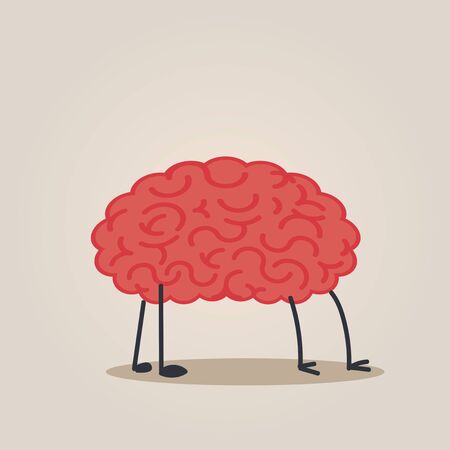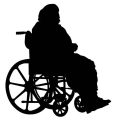Understanding Physical Impairment and Its Impact
Physical impairment encompasses a wide range of conditions that affect mobility, dexterity, or physical functioning. In the UK, millions of individuals live with some form of physical impairment, whether due to congenital conditions, illness, injury, or age-related changes. Common challenges include limited access to public spaces, difficulty using public transport, and obstacles in performing everyday tasks such as shopping or personal care. These barriers can impact independence and quality of life, often requiring people to adapt their routines or rely on support from family, carers, and community services. Additionally, social attitudes and lack of awareness may contribute to feelings of isolation or frustration. Understanding these impacts is crucial in fostering an inclusive society where people with physical impairments are empowered to lead fulfilling lives.
2. The Concept of Resilience in the Context of Disability
Resilience, particularly within the context of physical impairment, refers to an individual’s ability to adapt positively and recover from challenges or adversity related to their condition. For people living with disabilities, resilience is not merely about enduring hardship but also about finding new ways to thrive and maintain a meaningful quality of life. In Britain, this concept is shaped by both psychological understanding and cultural attitudes towards disability.
Defining Resilience for Individuals with Physical Impairments
Resilience is often described as the capacity to “bounce back” from difficulties. In the context of physical impairment, this can mean adapting to new limitations, managing ongoing medical or social challenges, and preserving mental wellbeing. It encompasses emotional strength, flexibility in thinking, and the ability to access support systems.
Key Psychological Theories Relevant to Resilience
| Theory | Main Idea | Application in Disability Context |
|---|---|---|
| Transactional Model of Stress and Coping (Lazarus & Folkman) | Focuses on how individuals appraise and respond to stressors. | People with impairments may reinterpret challenges as manageable, developing problem-solving skills and seeking appropriate support. |
| Positive Psychology (Seligman) | Emphasises strengths, optimism, and personal growth. | Encourages individuals to focus on what they can achieve, fostering hope and purpose despite limitations. |
| Social Model of Disability (British perspective) | Attributes barriers not only to individual impairments but also to societal attitudes and structures. | Empowers people by advocating for societal change alongside personal adaptation. |
Cultural Perspectives on Resilience in Britain
The British approach to disability has evolved significantly, moving away from seeing disability solely as a personal tragedy. Today, there is greater recognition of the importance of inclusivity, accessibility, and community support. Social initiatives such as peer support groups, accessible public spaces, and legislation like the Equality Act 2010 reinforce the idea that resilience is fostered not just individually but collectively. This cultural environment encourages individuals with physical impairments to draw upon both personal strengths and societal resources in their journey towards resilience.
![]()
3. Common Coping Mechanisms among People with Physical Impairments
Managing the challenges that come with physical impairments often requires a combination of practical and emotional coping strategies. In the UK, individuals draw upon a variety of approaches to maintain their independence and wellbeing, frequently supported by local communities and national resources.
Practical Strategies for Daily Living
One of the most common ways people adapt is by utilising assistive technologies, such as mobility scooters, adapted vehicles, or voice-activated devices. These tools can make daily tasks more manageable and foster a sense of autonomy. Many individuals also benefit from occupational therapy services provided by the NHS, which offer personalised advice on adapting home environments or routines to enhance safety and comfort.
Community-Based Support
Local support groups and charities, like Scope and Leonard Cheshire, play a pivotal role in helping people build networks of encouragement. These organisations often run peer-support meetings, advocacy services, and social activities that reduce isolation and provide opportunities to share experiences. For example, participating in community gardening projects or adaptive sports clubs can help individuals regain confidence while staying physically active.
Emotional Resilience Techniques
Coping emotionally often involves seeking counselling or mental health support. In the UK, talking therapies are accessible through the NHS or charities such as Mind. Many people find mindfulness practices or creative outlets like art and music helpful in processing emotions and reducing stress. Keeping connected with friends and family also remains an essential pillar of resilience, as strong relationships contribute greatly to psychological wellbeing.
Ultimately, people living with physical impairments across the UK demonstrate remarkable resourcefulness by combining these practical adaptations and emotional supports, building resilience not only for themselves but within their wider communities.
4. The Role of Social Support and Community Resources
Resilience in the face of physical impairment is not achieved in isolation; rather, it is fostered through robust networks of support and the accessibility of community resources. In the UK, a combination of personal relationships, charitable organisations, the NHS, and local authority services work together to create a comprehensive safety net for individuals facing physical challenges.
Support Networks: Friends and Family
Personal connections—friends, family members, and carers—are often the first line of emotional and practical support. Their encouragement can provide much-needed motivation during rehabilitation or adaptation periods, whilst also assisting with daily activities. Open communication within these circles can help individuals express their needs and feelings, reducing the sense of isolation commonly experienced following an impairment.
The Impact of Charities and Voluntary Organisations
Charitable organisations play a pivotal role in supporting those with impairments across the UK. They offer tailored advice, peer support groups, advocacy services, and sometimes financial assistance or equipment loans. Notable charities such as Scope, Leonard Cheshire, and Mencap specialise in different types of impairments, ensuring that individuals receive guidance relevant to their circumstances.
Examples of Charities Supporting People with Physical Impairments
| Charity | Main Focus | Key Services |
|---|---|---|
| Scope | Disability Equality | Advice helplines, employment support, online communities |
| Leonard Cheshire | Independent Living | Care services, volunteering opportunities, digital skills training |
| Mencap | Learning Disabilities | Family support, advocacy, information resources |
The NHS: Medical and Mental Health Support
The NHS offers integrated medical care tailored to the unique needs of people with impairments. This encompasses physiotherapy, occupational therapy, pain management clinics, mental health services, and ongoing monitoring through GP practices. Timely access to these services can significantly bolster coping mechanisms by addressing both physical symptoms and emotional wellbeing.
Local Authority Services: Accessibility and Independence
Councils across the UK provide resources designed to improve accessibility and promote independence. These include adaptations to homes (such as ramps or stairlifts), provision of mobility aids, accessible public transport schemes, and social care assessments. Local social workers can act as coordinators to ensure individuals receive all entitled benefits and support packages.
Together Building Resilience
The interplay between these layers of support creates an environment where resilience can flourish. By knowing where to turn—be it family members for emotional backing or specialised charities for expert guidance—individuals with physical impairments are empowered not only to cope but also to lead fulfilling lives within their communities.
5. Promoting Wellbeing and Independence
Enhancing wellbeing and fostering independence are crucial components in supporting people living with physical impairments across the UK. It is important to recognise that nurturing mental health and preserving autonomy can significantly improve overall quality of life, even in the face of daily challenges. One effective approach is to encourage engagement with local community groups, charities, or peer support networks, such as Scope or Disability Rights UK, which offer valuable resources and a sense of belonging. These organisations can help individuals connect with others who share similar experiences, reducing isolation and providing encouragement.
Embracing Self-Advocacy
Developing self-advocacy skills empowers people to make informed decisions about their care and lifestyle. In the UK, understanding your rights under the Equality Act 2010 and accessing services through your local council or NHS can open doors to tailored support plans, personal assistants, and adaptive technologies. Seeking advice from occupational therapists or disability advisors can further assist in identifying practical solutions for everyday living.
Mental Health Matters
Looking after emotional wellbeing is just as vital as managing physical health. Accessing talking therapies via the NHS, or making use of helplines like Mind or Samaritans, offers confidential support when feeling overwhelmed. Practising mindfulness techniques or gentle activities such as seated yoga, guided relaxation, or creative hobbies can also help build resilience and reduce stress.
Encouraging Independence
Promoting autonomy involves both physical and psychological strategies. Adaptive equipment, home modifications funded by Disabled Facilities Grants, and accessible public transport options available throughout the UK enable greater mobility and participation in community life. Setting realistic goals—whether it’s returning to work, learning new skills online, or volunteering—can foster a renewed sense of purpose and accomplishment. Ultimately, by combining self-care practices with available social and professional resources, people with physical impairments can continue to lead fulfilling lives while navigating their unique journeys towards wellbeing and independence.
6. Facing Barriers: Advocacy and Empowerment
Living with physical impairment in the UK often involves navigating a world not always designed with inclusivity in mind. While resilience and individual coping mechanisms are vital, it’s equally important to recognise the broader societal and environmental barriers that can hinder true participation and independence. From inaccessible public transport and buildings to social attitudes that may unintentionally exclude or underestimate, these obstacles can impact not only daily life but also emotional wellbeing.
Addressing such challenges requires both personal advocacy and collective action. Individuals living with impairments can play an active role in shaping their environments by voicing their needs—whether that means requesting workplace adjustments under the Equality Act 2010, participating in local council consultations, or sharing lived experiences to foster greater understanding within their communities. Support from friends, family, and allies is invaluable, amplifying voices and helping to break down misconceptions.
On a wider scale, many disability rights organisations across Britain work tirelessly to campaign for better accessibility standards, improved healthcare provisions, and fairer policies. Engaging with these groups—such as Scope, Disability Rights UK, or local advocacy networks—can empower individuals by connecting them to resources, peer support, and opportunities to influence policy changes. Even small actions like writing to your MP or supporting awareness campaigns can contribute to long-term progress.
Empowerment also comes from celebrating achievements, fostering self-confidence, and recognising the value of every person’s contribution to society. By advocating for equality and challenging barriers together, British society moves closer to becoming truly inclusive—where everyone has the opportunity not just to cope, but to thrive.


